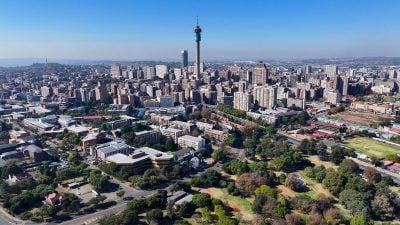Collaboration between the public sector and business in South Africa is driving a major reboot of the economy focused on key growth sectors.
At the heart of the innovative approach to addressing years of stagnant growth and economic challenges is a government-driven reform programme that enables business to bring its heft and skills to the table.
The wide-ranging programme falls under the umbrella of Operation Vulindlela, an initiative of the Presidency and National Treasury to accelerate the implementation of structural reforms and support economic recovery in key sectors.
It was launched in late 2020 as part of President Cyril Ramaphosa’s Economic Reconstruction and Recovery Plan, which responded to South Africa’s slow growth and the economic impact of the COVID-19 pandemic.
Big wins for the energy and logistics sectors
This has been a game-changer for the country. The energy sector, for example, has unlocked more than $20 billion in investments while logistics concessions and reform roadmaps are allowing private capital and engagement in state-owned enterprises for the first time.
There have been many wins to date.
In energy, regulatory reform opened the space for private investment in electricity generation, unlocking significant investment and adding 2,650MW to the grid. Loadshedding – regular blackouts to manage generation deficiencies – finally ended.
A pipeline of more than 2 000 MW of new generation capacity projects has been registered while power utility Eskom has returned to profitability after years of financial losses.
The logistics sector has been another area of focus, in response to many calls from the private sector for the state-owned enterprises dominating the industry to be reformed to ease export woes and address the high costs of dysfunction in the system.
As a result, the rail network owned by state-owned transport utility Transnet’s network has been opened to private operators under the Freight Logistics Roadmap. This opens the freight rail network and ports logistics system to private sector participation and competition.
Years of mismanagement at Transnet had led to declining rail volumes, port congestion and infrastructural decay, hampering exports and raising logistics costs.
The market has responded positively, with, for example, more than 115 applications from companies to Transnet’s call for companies wanting access rights to the freight rail network, which will allow private operators to run trains on Transnet’s infrastructure. This is the first true open access initiative in South African rail.
By “allocating” slots rather than giving outright ownership of tracks, the government retains infrastructure control but enables competition, which promotes efficiency.
There is a similar process in the ports sector, with partnerships being formed to crowd in investment and management expertise, starting with the Durban Pier 2 container terminal. This will enable private sector participation in container terminal operations for the first time.
In the telecommunications sector, reforms have been aimed at lowering data costs and improving network reach and quality.
Visa reform is another success story. A backlog of 300,000 visa applications has been cleared and an electronic travel authorisation system is now up and running, boosting tourism and business travel. The e-Visa system has been expanded to 34 countries.
Business expertise supporting national reform priorities
Busi Mavuso, the CEO of one of South Africa’s biggest business chambers, Business Leadership South Africa, says much valuable output has been achieved with these strategic, structured partnerships with the private sector.
“What began as a government coordination mechanism has evolved into something more powerful – a vehicle through which business expertise contributes to and supports national reform priorities.
“The shift is fundamental: government leads the reform agenda and provides the regulatory framework, while business brings infrastructure investment, operational knowledge, and execution capacity.
“This is pragmatic collaboration delivering what neither sector could achieve alone,” she says.
Ramaphosa, at the launch of Phase 2 of Operation Vulindlela earlier this year, committed the government to sustaining the momentum. He says the emphasis will be on accelerating reform, deepening implementation and expanding into new priority areas such as local government service delivery, digital public infrastructure, and integrated cities.
Critics say that although many reforms are under way, several are still in progress or delayed, such as the unbundling of power utility Eskom and full establishment of the independent transmission, both complex processes.
Implementation and impact vary. Radical as some of these initiatives are in a country that has suffered from a disconnect between business and government for many years, they have yet to translate into full-scale job creation, infrastructure rollout, and sustained growth.
PPP reforms deliver, but economy needs more sustained growth
GDP growth projections for South Africa remain low, with the National Treasury projecting 1.4% and the IMF 1.1%. Much higher growth is needed to transform the economy.
The president has noted this, saying higher sustained economic growth is required — to generate jobs, create fiscal space for social investment, reduce debt vulnerability, and improve the cost-of-doing-business environment
But the country is definitely on an upward trend with some of the new initiatives needing time to deliver tangible benefits.
These partnerships are underpinned by another key development – the successful implementation of a Government of National Unity put in place after the national elections in 2024.
This multiparty governance arrangement has improved political stability and investor confidence and unlocked a more explicit focus on growth, investment and reform.
Despite stresses and strains along the way, it remains in place, with key actors confirming their commitment to this new model of governance for Africa’s most industrialised nation.
 Sign in with Google
Sign in with Google 



